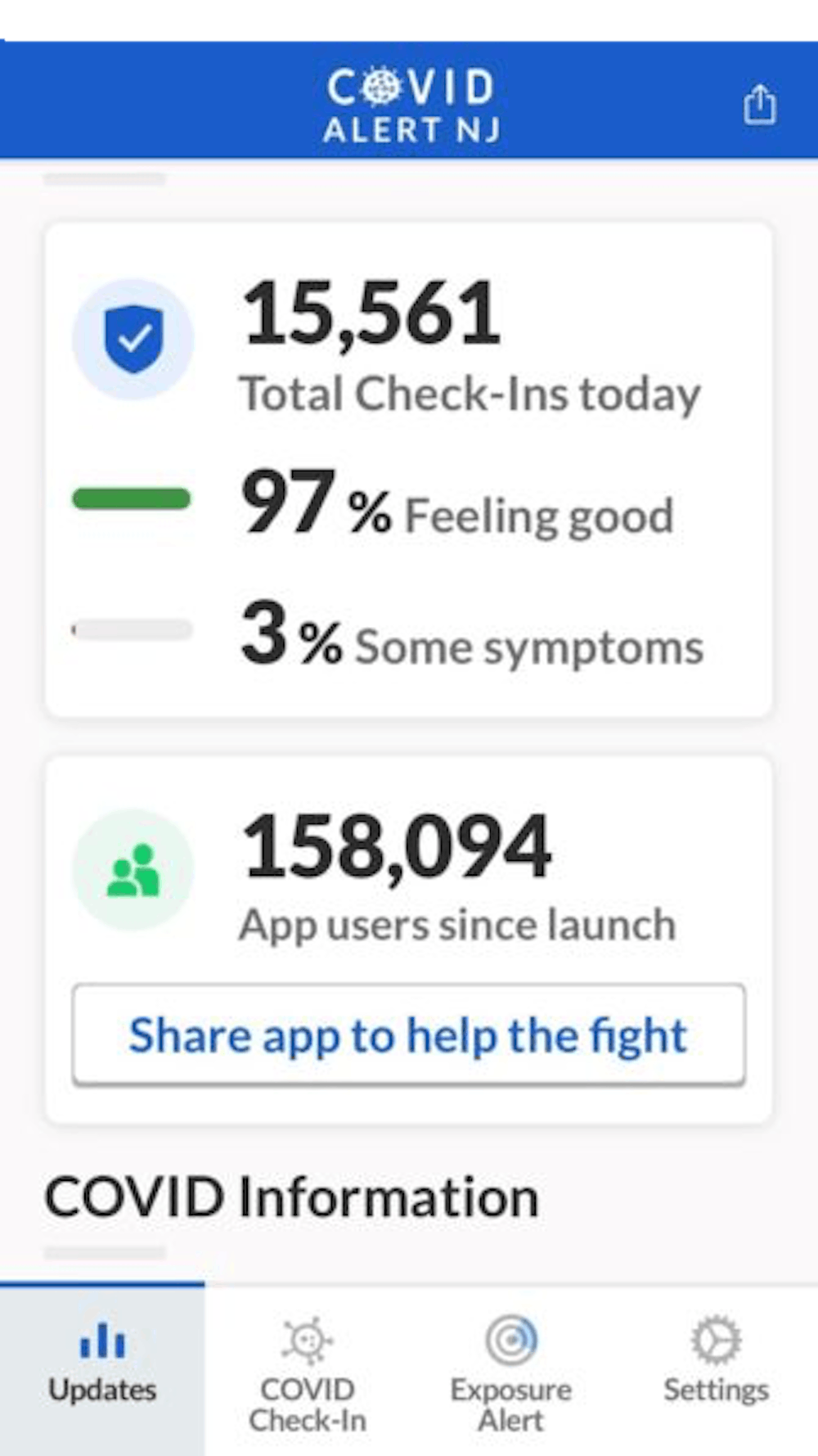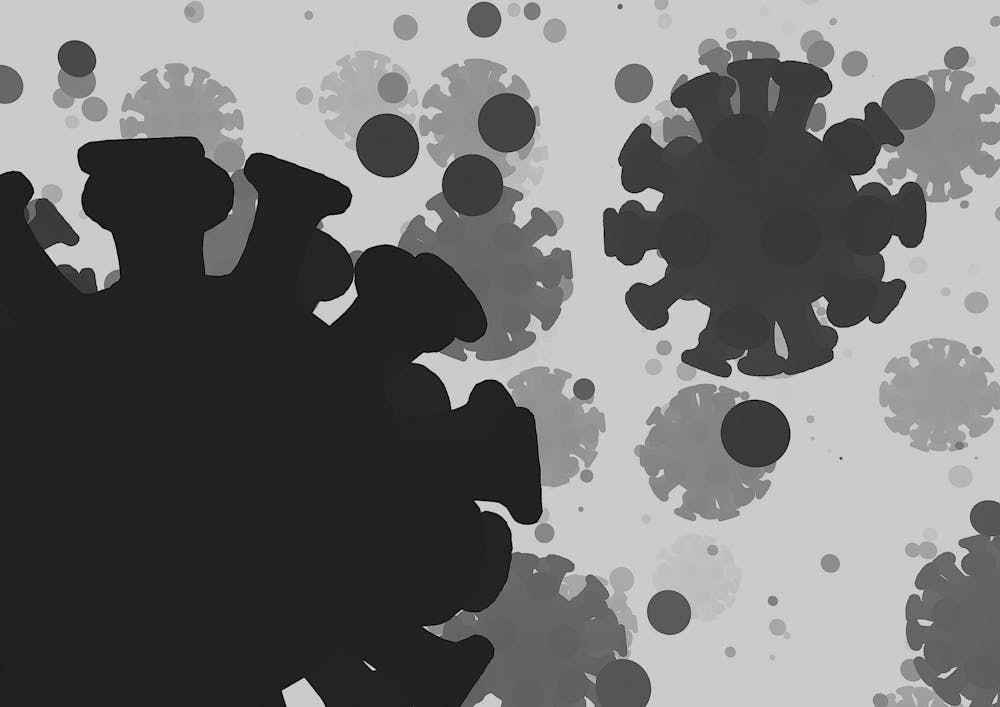Last week, Princeton Mayor Liz Lempert and the Princeton Council encouraged local residents to download “NJ COVID-19 Alert,” a contact tracing app developed by New Jersey to ramp up COVID-19 mitigation efforts throughout the state.
Deputy University Spokesperson Michael Hotchkiss endorsed the use of the app among the student body and the community at large.
“We encourage members of the University community to learn about and download the COVID Alert NJ app. The app is a helpful addition to our state’s toolkit for combating the spread of the COVID-19 pandemic,” he wrote.
This comes as New Jersey Health Commissioner Judith Persichilli warns of a potential second wave as cases in the tristate area begin to rise. This week, 17 of the states’ 21 counties saw a rise in cases with an average of 837 cases per day, a 24 percent increase from the average two weeks prior.
The widespread use of the novel statewide contact tracing app could supplement the University’s COVID-19 mitigation efforts, which involve the University Health Services’ biweekly asymptomatic testing protocol, social distancing guidelines, and mask-wearing. The University’s weekly COVID-19 testing results for both symptomatic and asymptomatic individuals can now be viewed in the COVID-19 dashboard available on the official Fall 2020 website.
Other colleges, including the New Jersey Institute of Technology, Rowan University, and Montclair State University, released messages endorsing the use of the COVID Alert NJ app in early October. Montclair State encouraged its community to “[c]onsider adding this app (COVID Alert NJ) to your phone, and please tell your friends and family about it. The more people who have it, the better it will work.”
Other New Jersey universities have been using other software to monitor student symptoms. Kean University uses an external app called Campus Clear, which gives students a quick survey to fill in about their condition. Based on their answers, the app determines whether or not it is safe for the student to enter a community area. Rutgers also has similar internal apps called My Campus Pass and Rutgers Visitor Log to help during the COVID-19 crisis, which have been required for students since Sept. 28.
The COVID Alert NJ app asks users for their age, race, ethnicity, gender identity, sexual orientation, and county of residence and uses Bluetooth proximity detection to notify users when they have come into close contact with users who have reported a positive testing status for COVID-19 into the app’s settings. Users receive exposure alert notifications when their phone’s underlying Bluetooth proximity detection systems have discerned that their phone has been about six feet away from a COVID-19-positive user’s phone for at least 10 minutes.
In order to preserve user privacy, the app refrains from tracking any identifiable information such as name, address, and phone number, and it does not collect GPS location information.
Users who report that they have tested positive for COVID-19 to the app are contacted by a state representative for the Department of Health, who will grant them the option of receiving a verification PIN that can be entered into the app. Once this PIN has been entered, COVID Alert NJ documents the user’s contacts, which have been recorded as unidentifiable codes, and issues exposure alert notifications to those users who have engaged in the app’s threshold for contact with the infected user. Notified users cannot view information regarding the identity of the infected user they engaged in close contact with.

A screenshot of NJ COVID-19 Alert’s Updates screen

According to Deaisha Johnson ’24, who is living on campus this semester, the NJ COVID-19 Alert app’s symptom check-in feature provides her with a sense of security amid the uncertainty caused by the COVID-19 pandemic.
“Everyday I get a notification reminding me to track my symptoms,” she said. “I find that helpful because it allows me to stop and think about how I’m feeling and whether I feel sick or not.”
Johnson also noted that the app enables her to view the number of individuals in her county who have reported experiencing symptoms on a particular day and the number of individuals who have the app downloaded onto their devices — currently “a bit under 200,000” according to Johnson.
The app also displays official information about New Jersey’s COVID-19 case counts and other statistical information with trends illustrated via accompanying graphs and tables. It also provides information about the importance of effective contact tracing protocols as well as the location of COVID-19 testing sites currently operating throughout the state.
Johnson said she believes the benefits of the app outweigh any concerns she has surrounding its potential invasiveness.
“I definitely think that the features asking users to input their age and their county of residence are very useful. I’d rather be safe and know whether I’ve come into contact with those infected by COVID-19 than not,” she said.
Anika Agarwal contributed reporting to this article.








